Published: January 19, 2016
What a heart attack or stroke can feel like
By American Heart Association News
Please note: This article was published more than two years ago, so some information may be outdated. If you have questions about your health, always contact a health care professional.

Heart attack and stroke are life-threatening emergencies and anyone experiencing symptoms should immediately call 911.
Most heart attacks involve discomfort in the center of the chest that lasts more than a few minutes, or that goes away and comes back. It can feel like uncomfortable pressure, squeezing, fullness or pain. Other symptoms can include pain or discomfort in one or both arms, the back, neck, jaw or stomach; shortness of breath or breaking out in a cold sweat, nausea or lightheadedness.
Warning signs of stroke can include face drooping, an arm or leg that is weak or numb and inability to speak clearly. Other signs can include a sudden severe headache with no known cause and sudden trouble seeing in one or both eyes.
Here, heart attack and stroke survivors describe how they felt when they experienced their symptoms:
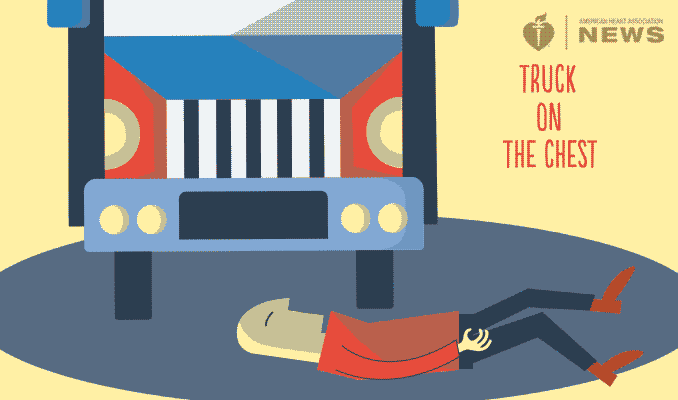
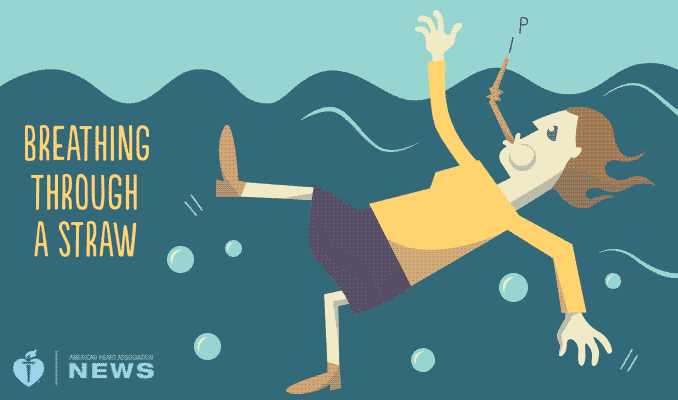
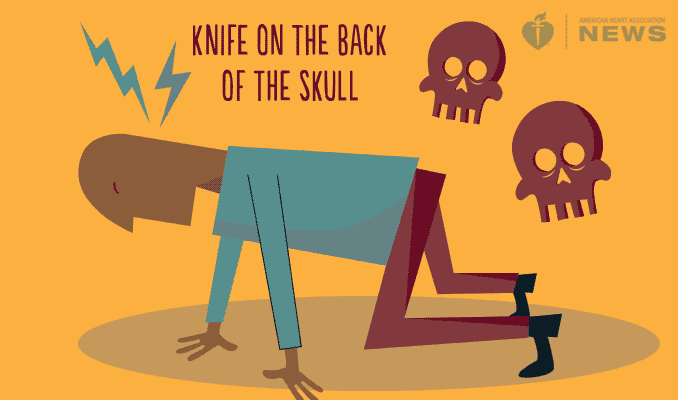
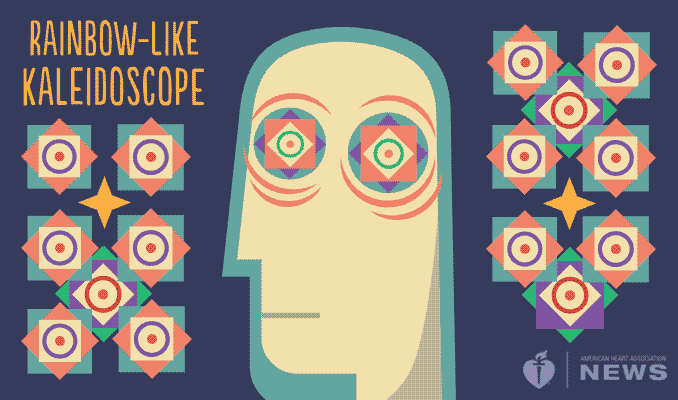
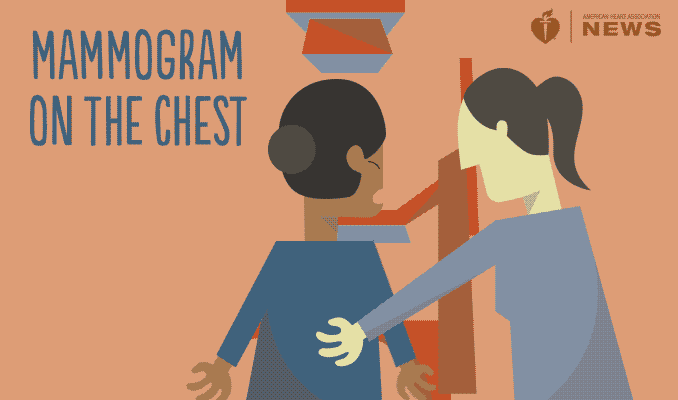
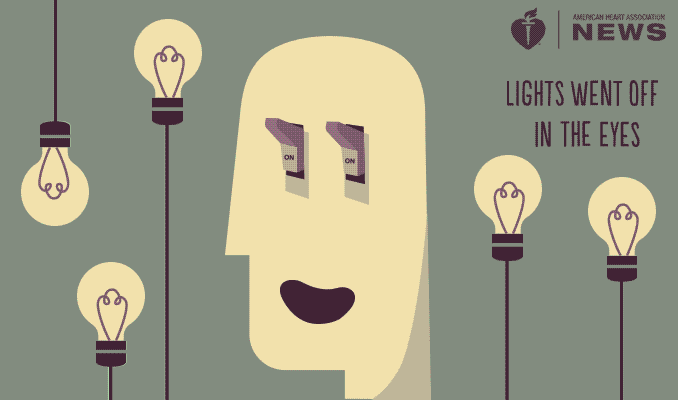
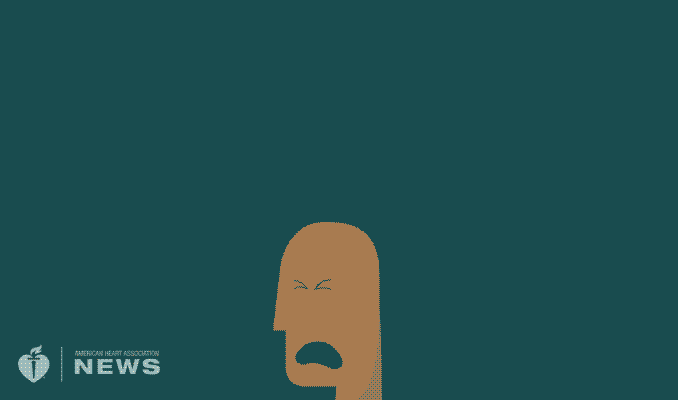
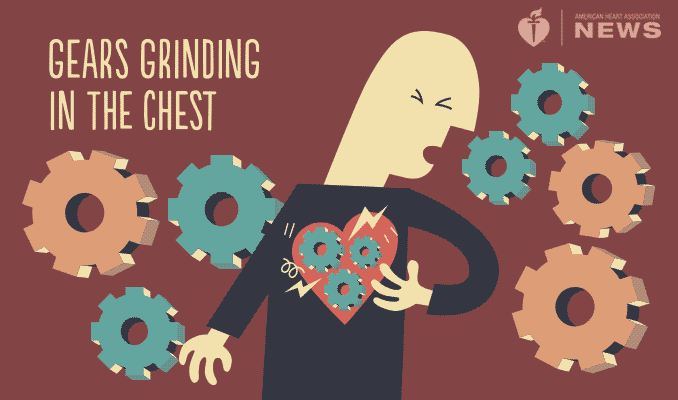
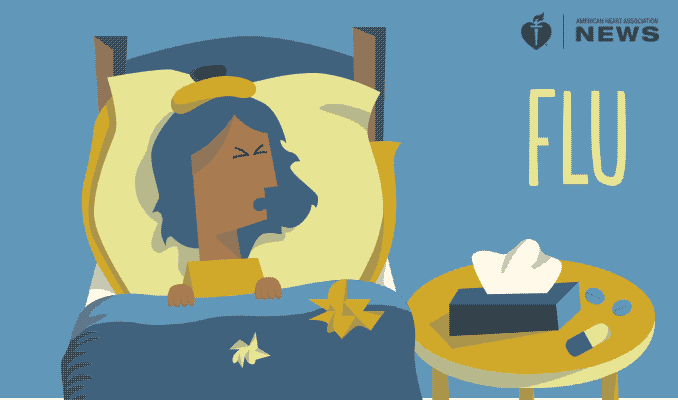
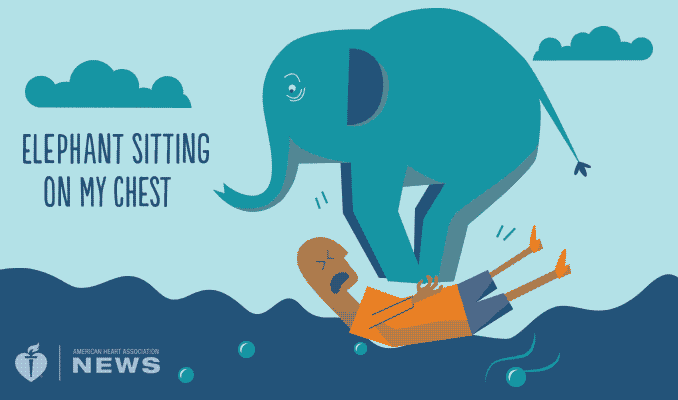
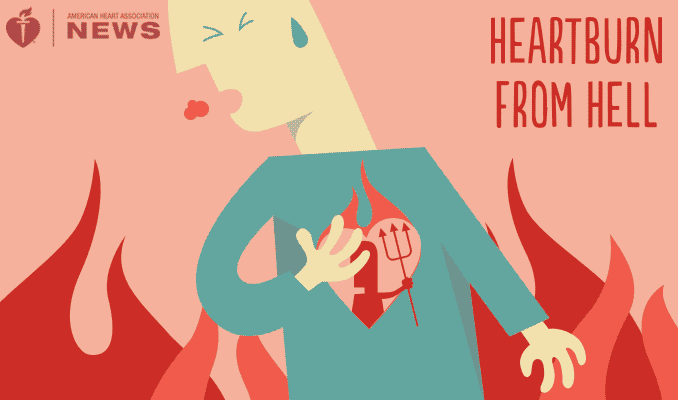
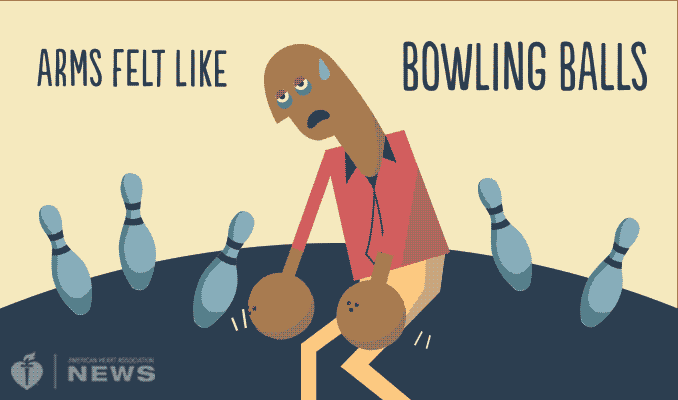
Illustrated by Bipassana Shrestha
American Heart Association News Stories
American Heart Association News covers heart disease, stroke and related health issues. Not all views expressed in American Heart Association News stories reflect the official position of the American Heart Association. Statements, conclusions, accuracy and reliability of studies published in American Heart Association scientific journals or presented at American Heart Association scientific meetings are solely those of the study authors and do not necessarily reflect the American Heart Association’s official guidance, policies or positions.
Copyright is owned or held by the American Heart Association, Inc., and all rights are reserved. Permission is granted, at no cost and without need for further request, for individuals, media outlets, and non-commercial education and awareness efforts to link to, quote, excerpt from or reprint these stories in any medium as long as no text is altered and proper attribution is made to American Heart Association News.
Other uses, including educational products or services sold for profit, must comply with the American Heart Association’s Copyright Permission Guidelines. See full terms of use. These stories may not be used to promote or endorse a commercial product or service.
HEALTH CARE DISCLAIMER: This site and its services do not constitute the practice of medical advice, diagnosis or treatment. Always talk to your health care provider for diagnosis and treatment, including your specific medical needs. If you have or suspect that you have a medical problem or condition, please contact a qualified health care professional immediately. If you are in the United States and experiencing a medical emergency, call 911 or call for emergency medical help immediately.

















